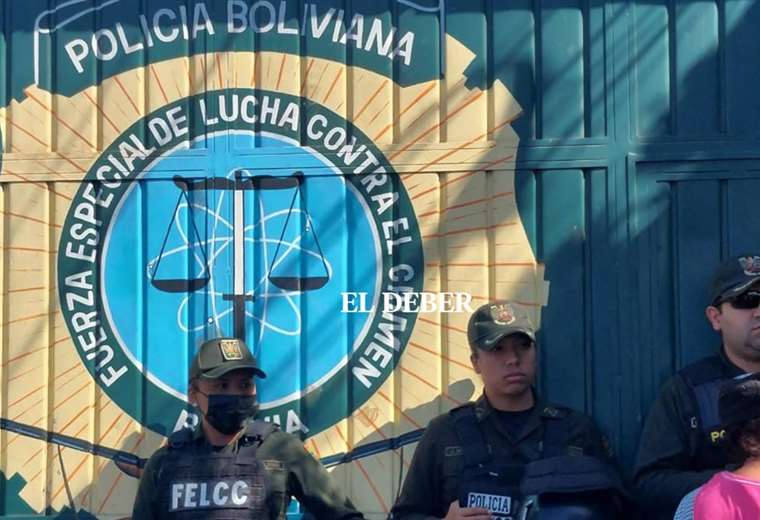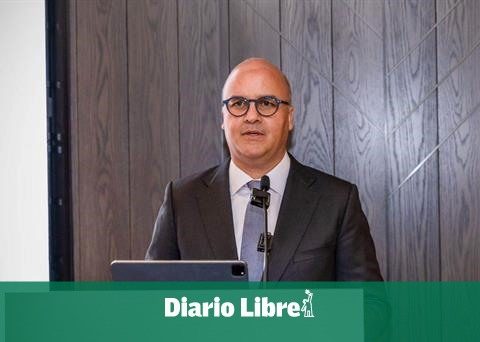During the 42 days that former minister Ana Lya Uriarte was absent, the Segpres did not fall apart, nor did the relationship between the government and the opposition reach a point of no return. On the contrary, the pieces of this constant chess game that are the Executive’s negotiations with Parliament moved slowly and in order, hand in hand with the Undersecretary of the General Secretariat of the Presidency (Segpres), Macarena Lobos.
This is what the spokesperson minister Camila Vallejo said: “This government does not stop in its work and legislative deployment.” Phrase that she expressed the same day that Uriarte extended her medical license for the fourth time due to anemia.
Its high technical profile is one of the first favorable comments made when consulting for it. She has no shortage of scrolls, she is a lawyer, with a degree in Legal and Social Sciences from the University of Chile, a diploma in Advanced Studies and a PhD in Law from the Complutense University of Madrid. Between 1998 and 2006 she worked as an adviser on labor and social security matters at the Ministry of Labor and Social Security. From 2006 to 2010, she worked as a legal advisor to the Budget Office of the Ministry of Finance.
During those years, he created ties with historical figures of the former Concertación and in particular with Andrés Zaldívar, from whom he had constant support throughout his career and where both met on repeated occasions.
Subsequently, she served as Legislative Coordinator of the Ministry of Finance and later became Undersecretary of the same ministry until 2018, during the second term of Michelle Bachelet.
She was also an external adviser to the Resolution Council of Parliamentary Appropriations of the National Congress. She was an unsuccessful candidate for the Constitutional Convention for the Non-Neutral Independents collective. She then joined the team of the presidential candidate Yasna Provoste to coordinate the programmatic team.
When the senator was out of the race, Lobos became part of the programmatic convergence agreement with the team of President-elect Gabriel Boric, with whom he had built a relationship of trust in the Chamber when the President was a deputy.
He landed at the Segpres undersecretariat when Giorgio Jackson led the portfolio. The President’s close friend did not perform well because he never managed to establish a smooth relationship with legislators. Lobos, on the other hand, had a much more oiled relationship in Congress given his experience with the world of the former Concertación and his highly technical profile, which allowed him to navigate those complex waters.
Former Minister Uriarte was absent when Congress was processing the Naín Retamal Law. It was at that moment that Lobos polished the position together with the Minister of the Interior, Carolina Tohá; the Minister of Justice, Luis Cordero; the spokes minister, Camila Vallejo, and also the Minister for Women, Antonia Orellana.
Days before the Senate voted on the controversial law, Minister Tohá, Cordero and Lobos went to the session of the security commission, led by Senator Felipe Kast, to present their indications. The rejection of his proposals was total. So much so that the representatives of the Government stopped in the middle of the session. “”We have found a disposition of little openness to dialogue in the majority of the members of the Security Commission of the Senate”, said the Minister of the Interior.
The project finally came out to be discussed the next day in the room at 4:00 p.m. “If it weren’t for Lobos, the Government would probably have stayed out of the Nain Retamal Law,” says the president of the Security Commission, Felipe Kast. From that moment on, Senator Evópoli formed a “good opinion of her in her ability to build agreements on complex issues.” Beyond her technical profile, Kast points out that it was “her attitude of hers, not very arrogant of hers and with great patience in the face of the divisions that the left itself had within” the key to unlocking the processing of the law.
Lobos is considered an independent close to the DC. The former president of the Senate and history of that party, Andrés Zaldívar, knew her very closely when Lobos was her adviser in the Upper House, worked with her in CIEPLAN and later in the Resolution Council of Parliamentary Assignments of the National Congress . Zaldívar, who is currently a candidate for the Constitutional Council, highlights his “good legal training and good judgment.” For the former senator, his character fits very well with the work he has to do today: “He has a very good treatment and a very good arrival because he is convincing.” He maintains that his personality is very affable, low profile, more “reflective” although this does not imply a kind of immobility, on the contrary. Zaldívar maintains that he “was always very dedicated to work, which he does with great precision.”
From the right they also highlight his professional and honest style when negotiating the Government’s proposals. The deputy and head of the RN bench, Frank Sauerbaum, did not have many opportunities to work with Uriarte since he took over shortly before the minister presented her first license. He recounts that the only exchange that he managed to have with Minister Uriarte was in the chamber when she approached to introduce herself when Sauerbaum had taken over as head of the RN deputies. Regarding Lobos, he says, “she seems much more applied, interested in knowing our position and every time she has a question she approaches us.” She also highlights the constant deference when trying to establish a dialogue: “She knows that we can have a position in favor or against, but at least the job of making the government’s position known is given. She does not start from the basis that we are going to say no and that is important”. Sauerbaum goes further and points out that another difference that he has heard in Congress is that “Lobos is better treated than Uriarte, he is more deferential and concerned, at least with the people of the opposition.”
In the coming days, President Gabriel Boric together with the new Minister Secretary General of the Presidency, Álvaro Elizalde, will have to define the permanence of Macarena Lobos in the post of undersecretary, after almost a month displaying his negotiation skills and knowledge of the intricacies of the building located in Valparaiso.

















